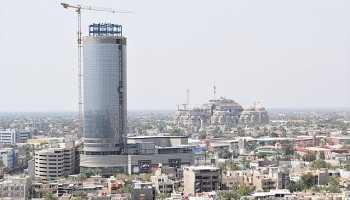G20 leaders have pledged to tackle critical global challenges, including poverty alleviation, progressive taxation, and climate protection but Transparency International (TI) warned that without addressing corruption and illicit financial flows, their nations risk becoming even greater havens for dirty money while exacerbating inequality.
TI criticized the G20 Rio Summit’s final declaration for dedicating just one paragraph to anti-corruption measures, calling it "weaker-than-ever." This omission, according to the anti-corruption watchdog, threatens to derail efforts to mobilize the billions, or even trillions of dollars pledged for poverty reduction and climate action.
"Leaders advanced on important topics, but they underestimated the importance of anti-corruption measures to achieve these goals," said Maíra Martini, TI's Head of Policy and Advocacy.
She underlined that "without concrete checks, the G20 risks exacerbating inequality instead of reducing it."
Transparency International highlighted the G20's failure to tackle illicit financial flows, noting that some G20 countries rank among the top destinations for dirty money from African states.
Illicit financial flows deprive low- and middle-income countries of essential resources and slows development. The United Nations Office on Drugs and Crime estimated that Africa loses over $50 billion annually to illicit financial flows.
In Rio, TI also staged a high-profile protest featuring paragliders with canopies resembling giant $100 bills landing on a banner reading, “How obvious should corruption be before it’s a G20 priority?”
As democratic norms decline worldwide and powerful interest groups wield increasing influence, TI questioned the G20’s capacity to deliver on its “lofty promises.”
The torch now passes to South Africa, which assumes the G20 presidency. TI urged President Cyril Ramaphosa to prioritize anti-corruption during his tenure.
"The G20 has the power to spearhead action on illicit financial flows," said Maíra Martini.
"Without bold measures, corruption will continue to erode trust, stall development, and deepen inequality worldwide," she concluded.






